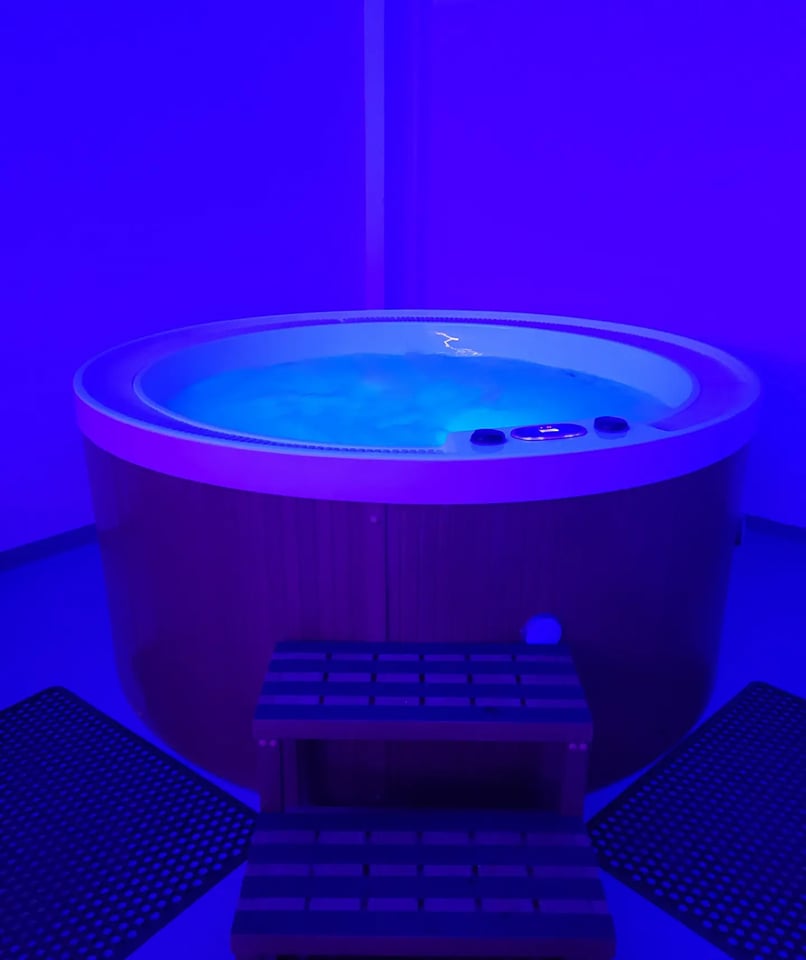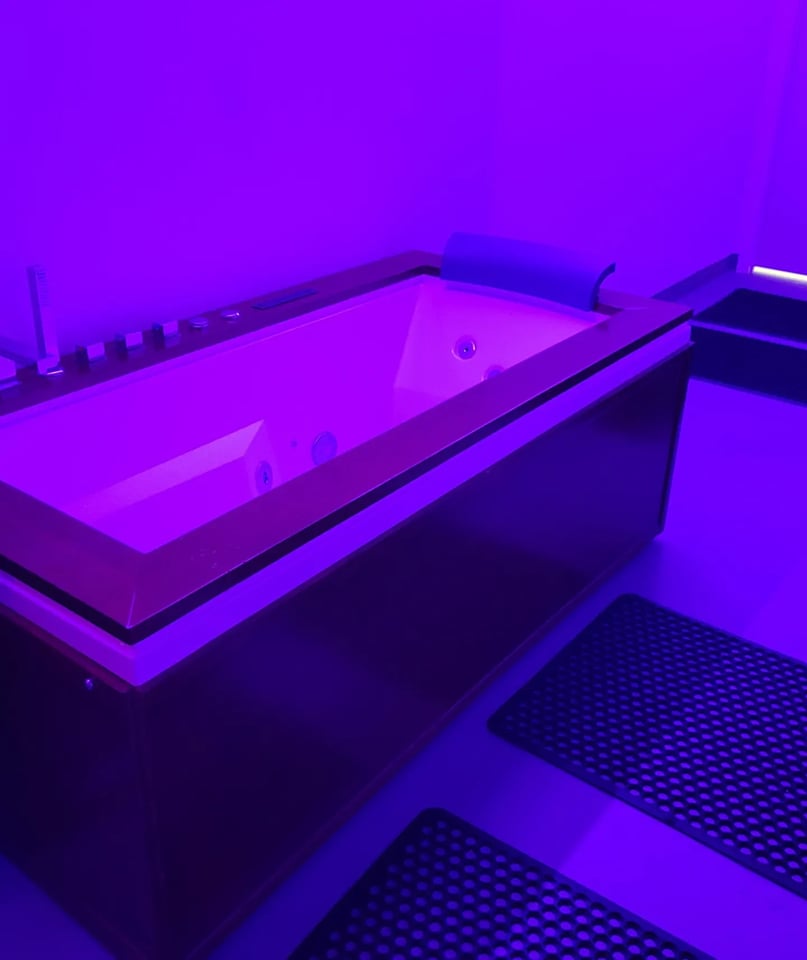HOT & COLD THERAPY - WET AREA
WET AREA
DAILY PASS
$20 / One Off
NO GYM ACCESS
UNLIMITED ACCESS TO HOT & COLD THERAPY:
SAUNA
ICE BATH
HOT SPA
MASSAGE BATH
STEAM AND JETS SHOWER
SERVICE HOURS:
– MONDAY TO FRIDAY: 8AM-8PM
– SATURDAYS: 8AM-5PM
– SUNDAYS: CLOSED.
– ALL PUBLIC HOLIDAYS: CLOSE FOR MAINTENANCE
– SELFSERVICE FACILITY, YOU MUST USE YOUR SMART PHONE TO ACCESS PREMISES AND WET AREA
WET AREA
WEEKLY PASS
$20 P/ Week
NO GYM ACCESS
UNLIMITED ACCESS TO HOT & COLD THERAPY:
SAUNA
ICE BATH
HOT SPA
MASSAGE BATH
STEAM AND JETS SHOWER
12 MONTH CONTRACT
SERVICE HOURS:
– MONDAY TO FRIDAY: 8AM-8PM
– SATURDAYS: 8AM-5PM
– SUNDAYS: CLOSED
– ALL PUBLIC HOLIDAYS: CLOSE FOR MAINTENANCE
– SELFSERVICE FACILITY, YOU MUST USE YOUR SMART PHONE TO ACCESS PREMISES AND WET AREA







BENEFITS OF ICE BATH
Lift your mood and mental state:
Ice baths naturally create balance and increase the levels of neurotransmitters like norepinephrine and feel-good serotonin. Cold water immersion can trigger a floodgate of mood-enhancing chemicals in the brain by awaking a natural ‘fight-or-flight’ response. This response to ‘environmental stress’ conditions our brain to cope better with the stressors of everyday life and helps decrease the production of inflammatory cytokines which are linked to anxiety and depression. By exposing your body to colder temperatures, you’re able to build up a higher tolerance to stress.Enjoy a good night’s sleep:
More than 80% of athletes taking post exercise ice baths report improved mental state and far better sleep patterns. Rest habits are triggered and regulated by the brain and the nervous system and ice bath therapy has been shown to have a direct effect on both. After the initial cold water temperature shock, your body is able to calm down and becomes more resilient to changes in our environment. This translate into you building up a higher tolerance to stress by regulating your cortisol levels helping improve the symptoms of depression and reducing the instance of sleep-related disorders.Drive your body further:
By exposing your body to colder temperatures, you’re able to alter the behaviour of your fat cells. With an exposure to physiological stressors, the ice bath method challenges your body to function beyond its comfort zone, hence its direct effect on immune function. Not only that, but the body sets off a response to the nervous system affecting oxygen intake, which helps deliver an increase in energy. Cold water immersions have been shown to trigger ‘recruiting’ which means your body can take white fat cells and turn them into brown fat cells. Unlike the tissue in white fat cells, the tissue in brown fat cells converts energy into heat. It’s a process called thermogenesis, and it’s been shown to help with metabolic function, blood glucose levels, and the prevention of weight gain. Doing ice baths over time may help your body transform from the inside-out, with more of fat cells that burn energy to generate heat and less fat cells that store energy to be released as a back up in case your body needs it. Just imagine your body helping you maintain weight for a change instead of working against you!Reach beyond your limits:
Shift your system into gear with cold water therapy by challenging your body to function beyond its comfort zone.How ice bath therapy works:
- During a training session, your muscles burn fuel and that creates a build-up of toxic waste products and lactic acids. Your body will naturally eliminate these waste products over a day or two however ice baths can reduce this recovery time to hours.
- By immersing your body in chilled water, the sudden cold sets off a reaction in the limbic (ancient) area in the base of your brain that is programmed to respond to such dramatic external events, in this case it senses that you might be freezing dangerously. This is also called the ‘fight-or-flight’ response.
- An automatic process begins to restore your body’s core temperature to safe levels by increasing blood flow and withdrawing most of the blood from your skin and outer soft tissue and muscles into the core of your body via your internal organs. This introduces fresh oxygenated blood and flushes the dangerous toxins and waste products quickly & effectively, much faster than the natural process. This eliminates the soreness related to exercise and speeds up your muscle recovery process.
- This response to ‘environmental stress’ conditions our brain to cope better with the stressors of everyday life and helps decrease the production of inflammatory cytokines which are linked to anxiety and depression. Most athletes report higher moods and better sleep after an ice bath.